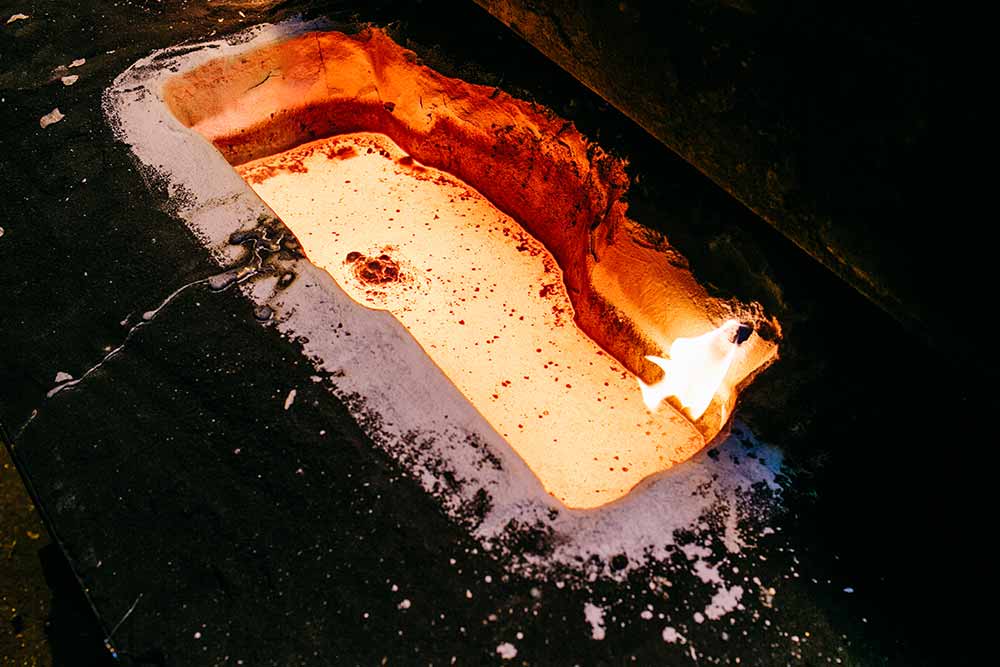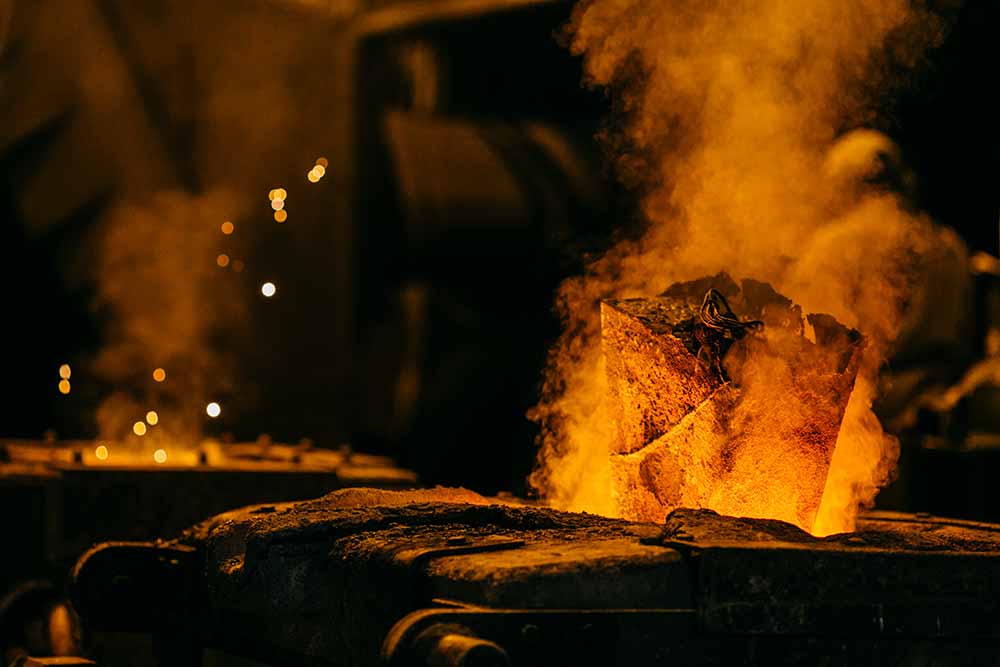Cast Iron Foundry
Our foundry is fully equipped to handle a wide range of component casting complexities and sizes, from one pound to 6,000-pound molds. Customers can provide their own patterns or allow our highly trained team to design in-house patterns. We have the ability to work with more than 100 different grades of iron and steel, including specialty metals such as high-chrome irons.
Iron is generally divided into two categories: gray iron and ductile iron. They are differentiated by the form and structure of carbon present within the metal. They each have unique properties that make them more or less beneficial for certain applications. Our team of melters, pourers, and metallurgical experts are experienced in gray iron casting and ductile iron casting.

Gray Iron Casting
Gray iron is casted iron with a graphitic microstructure that typically has a chemical composition of 2.5–4% carbon and 1–3% silicon by weight. The graphite forms three-dimensional flakes within the metal, which appear as fine lines on the polished surface. These graphite flakes make gray iron more brittle than its counterparts. Because of its low cost and machinability, gray iron casting is frequently used as an engineering alloy and can be found in applications such as machine tool mountings, manhole covers, and counterweights.
Ductile Iron Casting
Ductile iron is also referred to as nodular cast iron and is spheroidal graphite iron because the graphite within the metal takes the shape of nodules instead of elongated flakes. The rounded shape of these graphite inclusions inhibit the formation of cracks and stress points, giving the alloy enhanced ductility. The nodules are formed by adding “nodulizing elements” (typically magnesium) to the metal. Ductile iron casting is frequently used in automotive components, oil well pumps, and cable drums.

Attribute Comparison Chart for Gray Iron vs. Ductile Iron
| ATTRIBUTES | GRAY IRON | DUCTILE IRON |
| DUCTILITY | LOW | HIGH |
| TENSILE STRENGTH | 20,000 PSI – 60,000 PSI | MINIMUM 60,000 PSI |
| IMPACT RESISTANCE | LOW | HIGH |
| THERMAL CONDUCTIVITY | HIGH | LOW |
| VIBRATION DAMPENING | HIGH | LOW |
The Taylor & Fenn Company works with clients to determine the best material choice for their component. Our foundry is fully equipped to perform a variety of heat treatments as required. Quality testing and NDT services are also available. Contact us today to learn more.